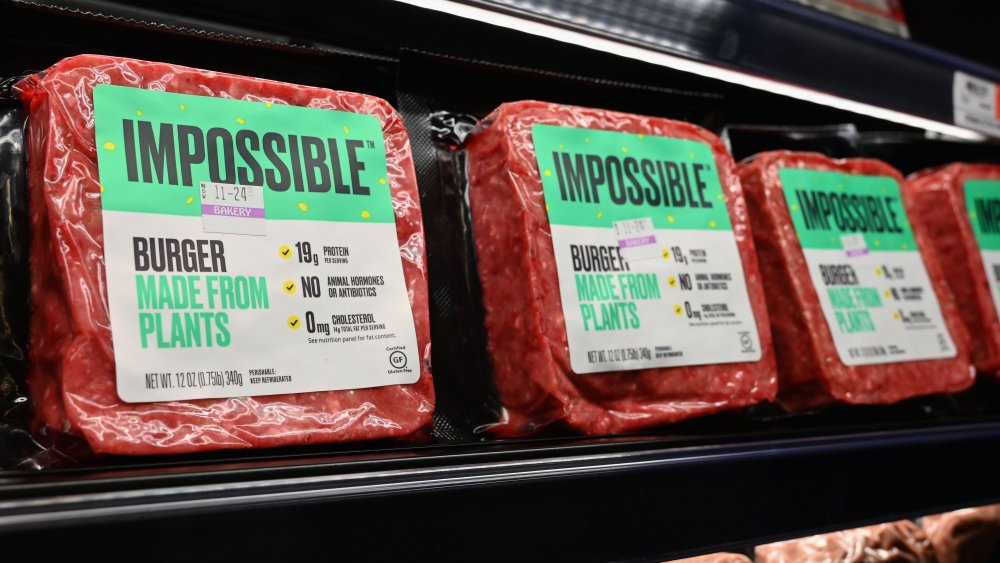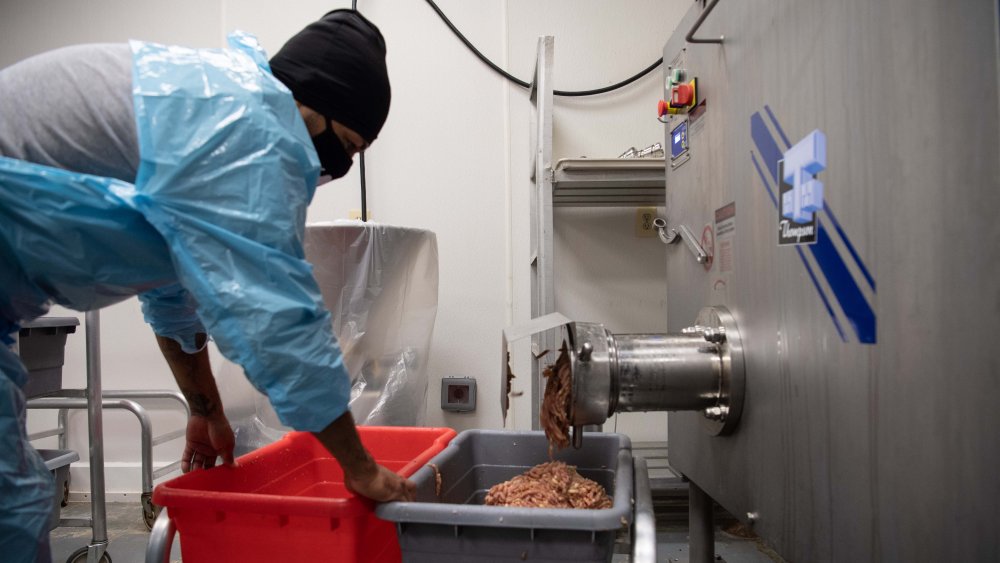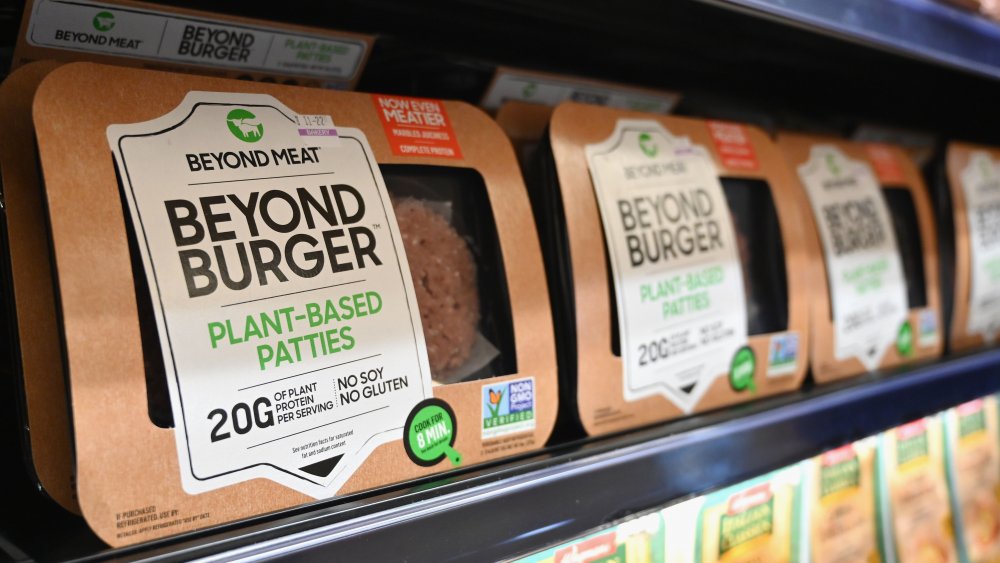The Real Reason Meatless Meat Sales Are Booming
There have been shortages of common goods such as toilet paper, yeast, and flour due to high demand during the pandemic — and recent developments indicate that the same might happen to meat. In the midst of these scarcities, sales of plant-based meat alternatives have been booming, with sales up 255 percent in the last week of March in comparison to the same week last year. This growth outpaces that of meat sales, which only increased 53 percent over the same period, according to Nielsen (via Forbes).
Jaime Athos, CEO of Tofurky, told Forbes that the upsurge in meatless meat sales comes from a "sense of new-product discovery in this category" that the crisis has encouraged. Athos also mentioned that consumer awareness of the positive social and environmental impacts of plant-based proteins is growing — something that has been especially highlighted with the recent news of meat plant closures and supply chain disruptions.
Major supermarket chains like Kroger and Costco have resorted to rationing meat purchases, but the reason why there is not enough meat in stock is not because there is a scarcity of meat, but rather that measures put in place to slow down the spread of COVID-19 have disrupted supply chains. According to the CDC, close to 5,000 meat and poultry workers across 19 states have tested positive for coronavirus through April. Four plants have closed and there has been a decline in pork production by 25 percent and beef production by 10 percent (via Mashable).
Meatless meat employees can work in a safer environment
Workers at meat processing plants are particularly susceptible to COVID-19 because it's difficult to always follow social distancing guidelines in a facility responsible for millions of servings of meat on a daily basis. In contrast, meatless meat has a production process that is somewhat insulated from the pandemic, according to Vox. The supply chain of these plant-based alternatives is not at all affected by meat plant closures, and cases of coronavirus among workers at these facilities are not at a high rate since they don't have to work in close contact like employees at meatpacking factories.
Impossible Foods, which expanded its Impossible Burger rollout to 1,700 Kroger-owned grocery stores nationwide this week, assured that its workers are able to work in a safe environment by maintaining social distancing and wearing masks that the company provides. While employees at facilities that manufacture meatless meat products, such as the Impossible Burger, don't need to be tightly packed together and work at breakneck speeds, it's a completely different case for meat plant workers. They have to stand shoulder to shoulder to quickly kill and butcher animals in order to keep production going. Because these unsafe working conditions and the rise in coronavirus cases among meatpacking employees have been reported in the media, Americans may also be making the switch to plant-based meat alternatives on an ethical basis.
Meatless meat has become more relevant and accessible
Another factor behind the push to meatless meat is concern for the environment. Rachel Konrad, Impossible Foods' chief communication officer, told Vox that moments like this onecan wake up the public to how meat consumption contributes to climate change, biodiversity collapse, and pandemics.
Meat alternative companies have also been excelling at making their products more affordable and accessible for consumers during a time when the traditional meat supply chain hasn't been able to reach them. Beyond Meats plans on introducing "heavier discounting against animal protein" and "aggressive pricing" this summer as the price of wholesale beef has surged to $4.10 per pound. The company will offer lower-priced bulk value packs to grocery chains amid meat shortages (via Forbes).
Impossible Foods has struck a new partnership with Kroger that now makes Impossible Burgers available to order on the supermarket chain's website and delivered via Instacart or picked up curbside without contact. The plant-based meat alternative company has also released a cookbook for home chefs as more Americans cook and dine inside their homes.
While meatless meat products may not take over the global meat market completely, as more and more consumers turn to them amid shortages in animal protein options, these alternatives might continue to be on their shopping lists even after the pandemic subsides.


